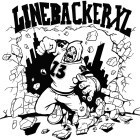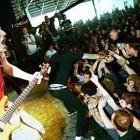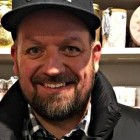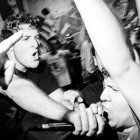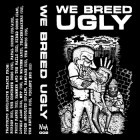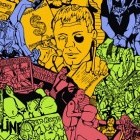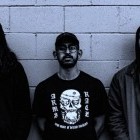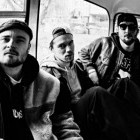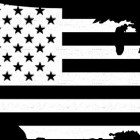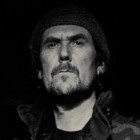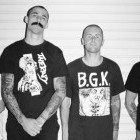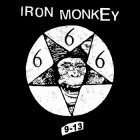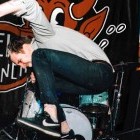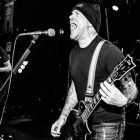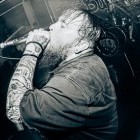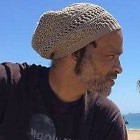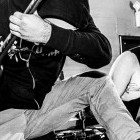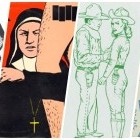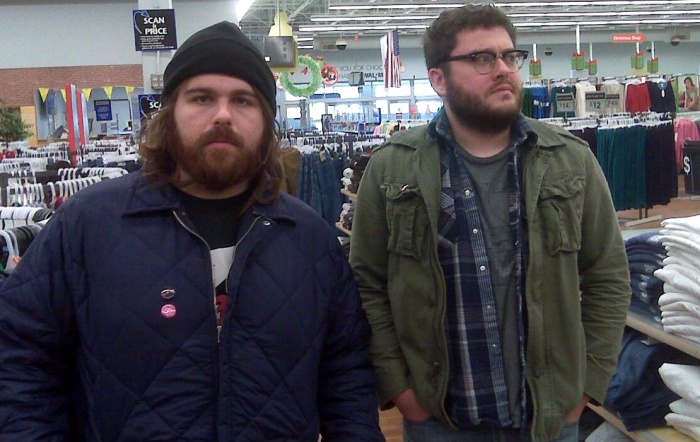
I once had the distinct displeasure of moving a vehophobe and his belongings from Baltimore to Tampa. Armed with little more than seemingly bottomless coffees from 95’s shittiest gas stations, it was my sole taste of the mental oblivion that exists in the hours after midnight. It’s unlikely our conversations were remotely as interesting as those between Hans Leibold and Andrew Duggan.
As co-hosts of Overnight Drive, a long-running podcast that recently eclipsed 200 episodes, they’ve clearly cracked the code for both longevity and maddeningly consistent quality. Self-described as a podcast about “two men speeding across America’s soul on the overnight drive of existence”, it still doesn’t do the show justice. The freedom of the open road, as it were, is the ability to swerve across the lines, to willingly veer off of the road, and to intentionally fall asleep at the wheel. They go where we’re not used to.
I’ve long stopped trying to explain the show. It’s a sprawling, endless meditation on the mundane and the hilarity of common life that manages moments of brilliance in the least likely corners of the mind. It’s been the inadvertent soundtrack to my midnight walks with my dogs, who, at this point, have likely become quite accustomed to their voices.
Having toured together relentlessly for years in bands they’re increasingly unlikely to self-promote (keep reading or just Google that shit), they conjur a chemistry that borders on alchemical. At times, it feels as though the show is beckoning from the void. On the unmarked road we’re blindly traveling together, let their bizarre siren song reel you in. You won’t be disappointed.
They were kind enough to dish on everything from the nascent podcast universe, Life’s Blood, Tom Hanks, candlepin bowling, the minutiae of life, hardcore, and Squeeze. If you’ve yet to enter the world of Overnight Drive, do yourself a favor. You’re welcome.
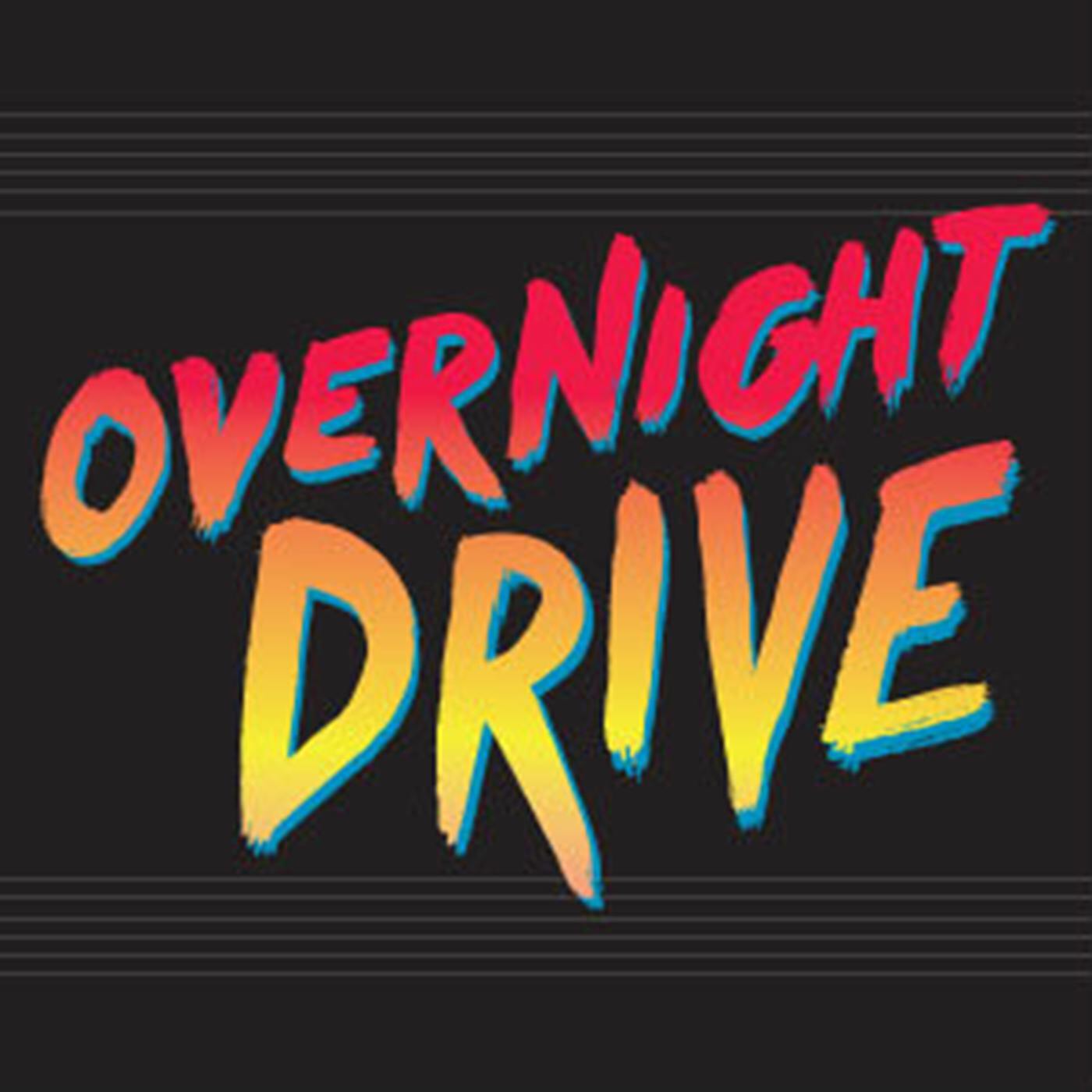
For the uninitiated, introduce yourselves and give a little bit of background about who you both are outside of the podcast. Where do you call home and does it suck?
Hans: I’m Hans and I’ve lived in Albany, NY on and off for about 20 years. Does it suck? I want to say yes, but I clearly choose to live here, so I’ll say that it has its ups and downs like any other downed, post-industrial east coast city. I currently work as a live sound engineer after having had a career as a fundraiser for non-profit organizations. I’m writing a book of memoir essays titled Light Fabrications, hopefully out this summer.
Andrew: I’m Andrew and I live in Brooklyn, NY. I’ve lived here for about ten years and it sucks slightly more every passing year. We are quickly sliding backwards into a picturesque 1970s style squalor and nobody wants to be the first to say it, so if nothing else, living here makes for some good dark theater. Outside of the podcast I work in digital marketing, and one of these days I’m going to actually knuckle down and research what that actually is.
We’re stuck on an island together, but inexplicably you only have 60 seconds to explain/sell me on the podcast. How’d you respond?
Hans: You will be our Tom Hanks now. Make fire. Spear fish. We’re waiting. Hungry. Also, we do a podcast you just gotta hear.
Andrew: I’m hunting you for sport. Listen to this.
Listening to the show, most people would be forgiven not knowing about your bands/musical lineage/art because you seemingly manage to avoid talking about it. Firstly, is that separation intentional? Talk about the band(s) a bit.
Hans: I don’t think it’s an intentional omission; it’s just not something we’ve ever really feel the need to ruminate on unless it’s topical. Andrew and I were bandmates in the bands End of a Year and, briefly, Self Defense Family from 2004-2010, when I left (which is a very long story). Since then, I’ve played guitar for a few different things, and now mainly play as something named Bare Mattress, which is a solo project which Andrew has seen and enjoyed, which came as an absolute shock as it’s essentially me singing to backing tracks, also known as “an acquired taste."
Andrew: It’s not necessarily intentional, but personally I hate talking about being in a band. I always have, even when I was 16 and that goofy shit was expected of me. So, I’ll plug Self Defense Family stuff when it comes out or we are going on tour, but I don’t feel inclined to make it a subject of conversation. Hardcore is going through its podcast phase and everyone is lining up to shoehorn their “I went candlepin bowling with John Joseph” stories into popular mythology right now, so there’s no shortage of that style of content if people want it. I’m just not comfortable at that party.
You’ve been in the podcast world for longer than most. What was it like at first? How’s that changed since you began? Has the show evolved as this world continues to grow?
Hans: At first, it was exhilarating. Still is. The idea for Overnight Drive was solely Andrew’s, and he approached me with the project when I was probably at my lowest point in life. Andrew came to where I lived and we just set up mics, went for it, and it felt like someone turned the water back on in my brain. A month later we were recording regularly, building a following, and I started slowly getting my shit together. I’m not a sentimental person, but Andrew kind of saved my life with this whole thing and I’m grateful as shit for that. If anything has changed since that first episode, it’s been us — if you listen to that first episode, I’m pretty out of it and just telling weird stories.
I think we’ve evolved into something like a duo that can instinctively know what the other is doing or where the episode is headed, and can handle the curveballs we toss at each other, which ironically enough was how we were as bandmates, so I suppose it’s only natural. I think our best stuff has been the last 100 episodes or so, when were got slightly more organized in terms of bits and segments and recurring jokes.
Andrew: Best way I can illustrate it is when we started, people would ask “what day is your podcast on? Do we get the station here?” Fast forward to this morning, where I am buying groceries and listening to an ad for “I Heart Radio’s 2019 Podcast Awards, hosted by Mario Lopez!” That’s no joke. Real thing. So it feels very different externally. But internally it feels the same as our second episode. Show up, hope Skype doesn’t shit the bed, and see what happens.
Assuming you toured together, the “overnight drive” title makes sense, but how’d it coalesce into what it is today? There’s both an intimacy and late-night loneliness to the show that makes it unique. Expand on that a bit.
Andrew: It’s actually pretty incredible how close you get to people under even a minor amount of collective stress. We were always too broke to get a motel and were pretty, let’s call it “discriminating” about where we would accept an offer to stay. So most of our tours were 50-75% long overnight hauls. After every show, we would all pile into the van, and everyone else would promptly fall dead asleep. And for the next six hours, Hans and I would just occupy this weird Art Bell-ish night highway world where local meth fiends would drive their cars right out of the woods onto the road, or we’d get buzzed by military aircraft doing training drills. We’d stop at a rest area to piss and find a roadside casino completely filled with dead eyed truckers pulling slots at 2am. America is fucking weird at night. So the basis of our friendship is rooted in basically trying to keep each other awake with cultural minutiae while we wait for the next bizarre thing to happen.
Overnight Drive is as free-form a podcast as I’ve heard. Is there a skeleton/plan for each show? Where did some of the hilarious bits (YouTube, personals, etc.) come from? The conversations, however bizarre or funny, oftentimes touch on some heady topics in a sneakily brilliant way. Is that reflective of you both as people?
Andrew: No real plan from show to show. We’ll occasionally plan for a segment, but our idea of planning doesn’t usually get past “let’s do that.” Occasionally we’ll do a segment that really connects and people want more of it, but the ones that repeat often are usually just organic, and some of the ones that I think will go over well fall totally flat.
Hans: When we plan, or do “notes," it either doesn’t work or we forget about them. If something is fueled by spontaneity, planning that thing seems disingenuous. A broken plan in football is always the most exciting one. The only thing I 100% plan out and curate are the YouTube R.I.P. segments and the personal ads. I always try to find the ones that really speak to what we do, which is unearth and talk about highly specific, weird, shit. A lot of times, I do something solely hoping I make Andrew laugh, and nothing more. It doesn’t ever occur to me that thousands of other people are hearing us talk about weird sex or Nelson Mandela or doubling back to something we just talked about as a bit — that realization comes later, after recording, when I think “oh, my aunt and several exes listened to that. Oops.” The truth is, as far as it being reflective of both of us as people, that we’ve always had hyper-referential senses of humor that mesh perfectly and annoy everyone else around us.
You recently celebrated 200 episodes, which is rad. Where’s a good place for people to start with the show if you want them to keep listening? If you want someone to be so horrified that they never listen again, where should they jump in?
Andrew: Start from the top, give yourself a quest. You’ll have highs, you’ll have lows, but most of all you’ll have something to do for like a year while you’re at the gym or driving or some shit. We took enough breaks that you’ll be able to catch up, promise. Episode 10 will horrify anyone, ourselves included. That’s our Sutter Cane moment.
Hans: My gut says start with episode 100, but Andrew’s right. Take the long drive and take it from the top. I guarantee you won’t enjoy or even understand all of it, but that’s your cue to get with it. Episode 10 is a rough one. Everything else is Space Mountain.
Are there any other podcasts you’d like people to check out or should this be the only one?
Andrew: Most of the podcasts I listen to are either the boring standard issue stuff, or will out me as a complete loon if I start shouting them out. A Little Time doesn’t get mentioned nearly enough and Nameless Cults is really good if you’re into horror movies.
Hans: I am a big-time The Best Show devotee. Tom Scharpling has created a massive body of work that should be a primer for how comedy/pop culture discussion podcasts are done. I also enjoy The Rialto Report and Beyond Yacht Rock for in-the-car listening. Overnight Drive should be the only podcast you ever seriously listen to.
As No Echo is predominatly a site about hardcore, I can’t let you get away without asking about it. What’s your take on the current state of hardcore both at large and locally?
Andrew: I’m not as connected to it as I used to be, so I probably won’t have a satisfying answer. I expose myself to as little journalism as possible, music or otherwise, and I don’t really have much of a community here for going to shows with people, so my involvement at this point is basically “checking in” every few months and listening to the records that people are excited about. But from the outside, when you’re not tied up with friends and emotions and all the minor dramas that are baked into being active in a scene, the monoculture of hardcore becomes very apparent. And that concerns me, because the defining aspect of a monoculture is that they feel very robust and sustainable until the right selective pressure applied at the right time wipes the whole thing out.
So, who is out there exploring ideas? Where are the weirdos? Not the fake weirdo running a Dremel over his Swans shirt to make it look old and worn in. Where are the dyed-in-the-wool weird kids doing weird shit and do they have a place anymore? They should. They perform a necessary function to the overall health of the group. They widen everyone’s perceptions.
Everything ages, and I get that. Overall guitar based music is on life support and we’re all waiting for the inevitable. But I’d like to think that hardcore has the potential to fight against entropy and survive longer. I want to live in a world where Black Flag records retain their urgency and continue to speak to new people instead of being filed away with Bread and The Big Bopper in the “some goofy shit that happened when our parents were our age” bins of history. But that’s going to be on kids who are just deciding now if they want a guitar or a Soundcloud premium account. What’s the legacy we are leaving them? Are we inspiring them to do the hard and rewarding thing? I firmly believe if you offer value you’ll find your people. But if it’s all just going to be Record Store Day exclusives, reviews covered with “for fans of” disclaimers, and who you fucked at which festival last year, man, I don’t know. That’s a tough sale to make to someone new. I hope it works.
Hans: What Andrew said. Precisely.
What were your top albums of 2018 you’d like to big up, hardcore or otherwise.
Andrew: I’m not qualified to answer this. I’m a fucking old man that listens to Squeeze every day. Go ahead and murder me. But before you do, just do me a kindness and buy the latest Self Defense Family record and all the adjacent acts. Scum Couch, Regional Justice Center, Drug Church, Thee Visitors, Pretty Matty, there’s probably half a dozen others I’m not remembering. Get these fools out of the group chat and put them to work.
Hans: I’m not sure what’s happening in 2018, and I rarely sit down and listen to hardcore music. I truly enjoy any hardcore band that is serious about being the best band in the room and not following hardcore cosplay trends, so surprise me, 2019.
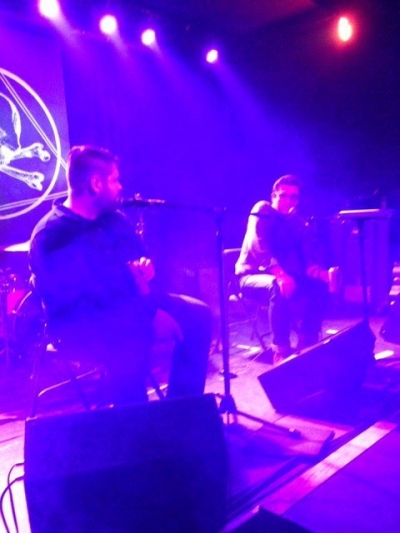
How about all-time favorite hardcore LPs?
Hans: Here is a list of some of my favorites:
- New York's Hardest compilation that came out on IJT (IDJIT) Records in 1995 (the one with the angry pit bull on the cover). The best song on it is “Greed” by Full Contact and os still one of New York’s hardest!
- Earth Crisis, Destroy the Machines — Absolutely does not hold up to the test of time, but this album does transport me to a time where I thought a lot of things were A Big Fucking Deal.
- Neglect, The Complete Don Fury Sessions — Neglect is extremely stupid and that’s why I love them. I saw the singer break a glass over his head.
- Ignition, Anger Means / Proven Hollow 7’’ — I love Ignition and I think “Anger Means” might be the perfect hardcore song.
- No Trend, Too Many Humans — A perfect record and the blueprint for the noisy mysterious hardcore that would pile up in the 2000s.
Andrew: My favorite hardcore and punk records are pretty unremarkable. No curveballs. I listen to a lot of X, Wire, Reagan Youth, etc. I didn’t get into heavier shit until I was older, weirdly, so I’m still working through that. One record I love that doesn’t get nearly enough attention is Life’s Blood's Defiance. I have such a soft spot for records that are all out of tune and feel held together by duct tape so I love this shit. This record played loud is guaranteed to clear the room of all weaklings.
***
You can stream future and past episodes of the Overnight Drive podcast at this link.
If you're shopping for vinyl, CD, and cassette hardcore titles, head to No Echo's partner store, Reverb LP, to see what they have available. Every purchase you make helps No Echo with site costs.
Tagged: overnight drive podcast, podcast, self defense family

